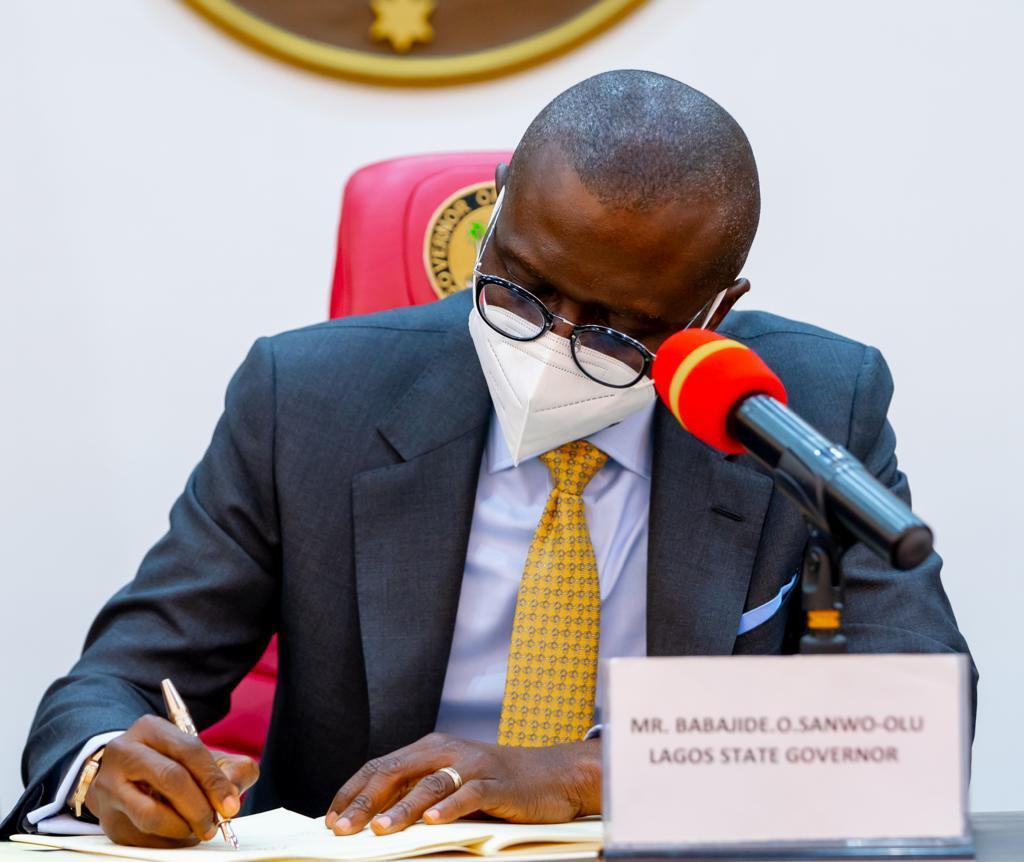The Lagos State Governor, Mr Babajide Sanwo-Olu, has signed into law the state Value Added Tax Bill.
VAT Bill
The state Commissioner for Information and Strategy, Mr Gbenga Omotoso, in a statement on Friday, said the governor signed the bill after returning from an official trip.
“The Governor signed the bill for a law to impose and charge VAT on certain goods and services on the 10th of September, 2021, after returning from an official trip to Abuja. By this act, the Bill has now become a Law,” the statement partly reads.
The bill passed through first and second readings on September 7 and was then handed to the House committee on finance.
VAT Controversy
Nigerians may pay more and government may collect less. watch the video below
Below are the highlights of the VAT bill:
- The tax is to be administered by the Lagos State Internal Revenue Service (LIRS)
- The rate of the tax is 6%
- Section 16(2) requires an importer of taxable goods to pay the tax on the goods to the LIRS before clearing the goods (it is not clear how this will be implemented)
- Taxable persons are to register for the tax within 6 months of the commencement of the law or 6 months of commencement of business whichever is earlier. Commencement date is yet to be indicated.
- Based on section 9, nonresidents are to register for the tax if they carry on business in the state. There is no provision for self-charging of VAT
- Monthly returns and remittance of VAT is due by the 21st of the succeeding month in a manner specified by the LIRS. This means the first return under the law will become due by 21st of month after enactment
- Any appeal against the decision of the LIRS regarding the VAT matters goes to the VAT Appeal Tribunal to be established under the new law. Members are to be appointed by the governor on the recommendation of the Attorney-General and Commissioner for Justice.
- The VAT revenue is to be shared 75% to the State and 25% to the Local Governments.
- The list of exempt items is similar to the old national VAT law including basic food items, medical services and educational materials
- There is no registration exemption for small businesses unlike the N25m exemption under the national VAT Act.
What This Means For Lagos State
While deliberating on the bill during plenary, Mudashiru Obasa, the House speaker, said it would further lead to an increase in the state’s revenue and infrastructural development.
The speaker lamented a situation “where about N500 billion would be generated from the state while N300 billion was generated from other South-west states, but paltry amounts would be disbursed to Lagos state in return”.
Here is a copy of the draft VAT law Download Lagos State draft VAT law






















